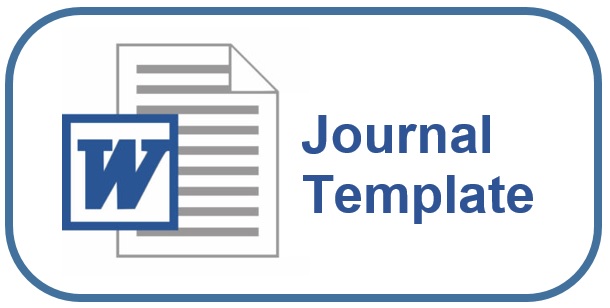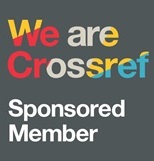Financial Literacy Workshop to Intervene Consumption Patterns of Rural Areas in Malang
DOI:
https://doi.org/10.36277/abdimasuniversal.v7i1.2397Keywords:
financial literacy, consumption patterns, rural communities, population migration, economic stabilityAbstract
This study explores the economic, educational, and infrastructural challenges in Srigonco Village, Bantur District, Malang Regency, Indonesia. The village's dependence on agriculture makes it economically vulnerable, while limited educational opportunities and inadequate infrastructure further hinder development. The study emphasises the critical role of financial literacy in empowering residents to make informed financial decisions and better utilise financial services. By implementing Training of Trainers (ToT) programs, the village can enhance financial management skills and promote economic resilience. Improved financial literacy is expected to lead to increased asset ownership, participation in productive activities, and long-term economic stability, ultimately improving the quality of life for the community.
Downloads
References
Akita, T. (2002). Regional income inequality in Indonesia and the initial impact of the economic crisis. Bulletin of Indonesian Economic Studies, 38(2), 201-222. https://doi.org/10.1080/000749102320145057.
Ariffin, M. R., Sulong, Z., & Abdullah, A. (2017). Students’ perception towards financial literacy and saving behavior. World Applied Sciences Journal, 35(10), 2194-2201. https://doi.org/10.5829/idosi.wasj.2017.2194.2201.
Badan Pusat Statistik (2023) Statistik Indonesia 2023. https://www.bps.go.id/id/publication/2023/02/28/18018f9896f09f03580a614b/statistik-indonesia-2023.html.
Badan Pusat Statistik Jawa Timur (2023). Jumlah Penduduk Miskin menurut Kabupaten/Kota di Jawa Timur (Ribu Jiwa), 2022-2024. https://jatim.bps.go.id/indicator/23/421/1/jumlah-penduduk-miskin-menurut-kabupaten-kota-di-jawa-timur.html.
Badan Pusat Statistik Kabupaten Malang (2017). TKI Kabupaten Malang Menurut Negara Penempatan Tahun 2016-2020. https://malangkab.bps.go.id/statictable/2017/07/12/644/tki-kabupaten-malang-menurut-negara-penempatan-tahun-2016-2020.html.
Badan Pusat Statistik Kabupaten Malang (2024) Angka Partisipasi Murni (APM) menurut Tingkat Pendidikan https://malangkab.bps.go.id/id/statistics-table/2/MzgjMg==/angka-partisipasi-murni--apm--me-nurut-tingkat-pendidikan.html.
Burchi, A., Włodarczyk, B., Szturo, M., & Martelli, D. (2021). The effects of financial literacy on sustainable entrepreneurship. Sustainability, 13(9), 5070. https://www.mdpi.com/2071-1050/13/9/5070/pdf.
Demirgüç-Kunt, A., & Klapper, L. (2013). Measuring Financial Inclusion: Explaining Variation in Use of Financial Services across and within Countries. Brookings Papers on Economic Activity, 2013(Spring), 279-340. https://dx.doi.org/10.1353/eca.2013.0002.
Dercon, S. (2006). Economic reform, growth and the poor: Evidence from rural Ethiopia. Journal of Development Economics, 81(1), 1-24. https://citeseerx.ist.psu.edu/document?repid=rep1&type=pdf&doi=1302a4932ce813d7062d1affed5ad31c8ae0bb11.
Dercon, S. (2009). Rural poverty: Old challenges in new contexts. The World Bank Research Observer, 24(1), 1-28. https://ora.ox.ac.uk/objects/uuid:fc32e086-9350-4844-be35-046957d60f9b/download_file?file_format=pdf&safe_filename=gprg-wps-072.pdf&type_of_work=Working+paper.
Dinas Komunikasi dan Informatika Kabupaten Malang (2021) Profil Kabupaten Malang 2021. https://portal.malangkab.go.id/uploads/dokumen/malangkab-pusat-opd-PROFIL%20KABUPATEN%20MALANG%20lengkap%20revisi3(juni)_FIX.pdf.
Duflo, E. (2004). The medium run effects of educational expansion: Evidence from a large school construction program in Indonesia. Journal of Development Economics, 74(1), 163-197. https://www.nber.org/system/files/working_papers/w8710/w8710.pdf.
Fauziah, F., Trivena, S. M., & Aini, Y. N. (2021). The effect of financial literacy and financial inclusion on economic growth in Indonesia. JBMP (Jurnal Bisnis, Manajemen dan Perbankan), 7(2), 339-359. https://jbmp.umsida.ac.id/index.php/jbmp/article/download/1539/1826.
Glewwe, P., & Kremer, M. (2006). Schools, teachers, and education outcomes in developing countries. Handbook of the Economics of Education, 2, 945-1017. https://dash.harvard.edu/bitstream/handle/1/42482316/122.pdf?sequence=1.
Harris, J. R., & Todaro, M. P. (1970). Migration, unemployment and development: a two-sector analysis. The American economic review, 60(1), 126-142. http://www.jstor.org/stable/1807860.
Hidayat, A. R., Onitsuka, K., Sianipar, C. P., Basu, M., & Hoshino, S. (2023). To migrate or not to migrate: Internet use and migration intention among rural youth in developing countries (case of Malang, Indonesia). Digital Geography and Society, 4, 100052. https://www.sciencedirect.com/science/article/pii/S2666378323000041.
Khalisharani, H., Johan, I. R., & Sabri, M. F. (2022). The Influence of Financial Literacy and Attitude Towards Financial Behaviour Amongst Undergraduate Students: A Cross-Country Evidence. Pertanika Journal of Social Sciences & Humanities, 30(2). https://doi.org/10.47836/pjssh.30.2.03.
Khasanah, M., Aminullah, R., & Setianingsih, D. (2022). Determinants of Islamic Financial Literacy Index: Comparison Based on Ethnographic Studies in Yogyakarta, Indonesia. Afkaruna: Indonesian Interdisciplinary Journal of Islamic Studies, 18(1), 185-206. https://journal.umy.ac.id/index.php/afkaruna/article/download/12584/7670.
Lusardi, A., & Mitchell, O. S. (2014). The economic importance of financial literacy: Theory and evidence. American Economic Journal: Journal of Economic Literature, 52(1), 5-44. https://www.nber.org/system/files/working_papers/w18952/w18952.pdf.
Maryunani, M. (2024). Utilization of Village Funds Based on Planning in Development in Improving Village Autonomy and Welfare of Village Communities in Malang Regency. Asia Pacific Journal of Management and Education (APJME), 7(1), 31-43. https://doi.org/10.32535/apjme.v7i1.293.
Massey, D. S. (1990). American apartheid: Segregation and the making of the underclass. American journal of sociology, 96(2), 329-357. http://davisvanguard.org/wp-content/uploads/2013/07/Massey1990_American_Apartheid.pdf.
Massey, D. S., & Denton, N. A. (2019). American apartheid: Segregation and the making of the underclass. In Social Stratification, Class, Race, and Gender in Sociological Perspective, Second Edition (pp. 660-670). Routledge. https://www.taylorfrancis.com/chapters/edit/10.4324/9780429306419-102/american-apartheid-segregation-making-underclass-douglas-massey-nancy-denton.
Miller, M., Godfrey, N., Levesque, B., & Stark, E. (2009). The case for financial literacy in developing countries: Promoting access to finance by empowering consumers. World Bank, DFID, OECD, and CGAP joint note, Washington, DC: World Bank. http://www. oecd. org/dataoecd/35/32/43245359. pdf.
Nugroho, T. W., Rahman, M. S., Toiba, H., Andriatmoko, N. D., Hartono, R., & Shaleh, M. I. (2023). Does financial literacy matter for village-owned enterprises’(VOEs) performance? Evidence from East Java Indonesia. Cogent Social Sciences, 9(2), 2263945. https://www.tandfonline.com/doi/pdf/10.1080/23311886.2023.2263945.
Prasisca, Y., & Sutikno, F. R. (2015). Gender equality and social capital as rural development indicators in Indonesia (case: Malang Regency, Indonesia). Procedia-Social and Behavioral Sciences, 211, 370-374. https://doi.org/10.1016/j.sbspro.2015.11.048.
Prastiwi, L. F., Priambodo, M. P., Soseco, T., Dwiputri, I. N., Sumarsono, H., & Qodri, L. A. (2024). Economic Development for Empowering Local Communities. KnE Social Sciences, 425-435. https://kneopen.com/article/html/KnE-Social/16744/26580.
Republika (2018) https://news.republika.co.id/berita/pj5uzc366/malang-penyumbang-tenaga-kerja-migran-tertinggi-di-indonesia.
Santos, G. N. D., Setiawan, A., Reza, M. (2019). Perubahan Pemanfaatan Ruang Akibat Migrasi Sirkuler dan Migrasi Internasional di Desa Sumberbening Kec. Bantur, Kab. Malang. http://eprints.itn.ac.id/4496/13/Jurnal.pdf.
Said, A., & Widyanti, W. D. (2002). The impact of economic crisis on poverty and inequality in Indonesia. Impact of the East Asian Financial Crisis Revisited, The World Bank Institute and Philippine Institute for Development Studies, Washington, DC, 117-92. https://pidswebs.pids.gov.ph/CDN/PUBLICATIONS/pidsbk02-impact.pdf#page=136.
Sayono, J., Ayundasari, L., Ridhoi, R., & Irawan, L. Y. (2020, May). Socio-economic impact in-out migration phenomenon in Southeastern Malang in 19th-20th. In IOP Conference Series: Earth and Environmental Science (Vol. 485, No. 1, p. 012023). IOP Publishing. https://iopscience.iop.org/article/10.1088/1755-1315/485/1/012023/pdf.
Sen, A. (1999). Development as Freedom. Oxford: Oxford University Press.
Sen, A. (2014). Development as freedom (1999). The globalization and development reader: Perspectives on development and global change, 525. https://diarium.usal.es/agustinferraro/files/2020/01/Roberts-Hite-and-Chorev-2015-The-Globalization-and-Development-Reader.pdf#page=539.
Soseco, T. (2016). The Relationship between Rural Accessibility and Development. Jurnal Ekonomi dan Studi Pembangunan. 8(2), 31-40. https://doi.org/10.17977/um002v8i22016p131.
Soseco, T. (2022) Household Size and Household Wealth in Indonesia with the Influence of Spatial Aspect. Economics and Finance in Indonesia. 68(2). 75-86. Available at: https://scholarhub.ui.ac.id/efi/vol68/iss2/1.
Sujarwoto, S., & Maharani, A. (2022). Sociodemographic characteristics and health access associated with COVID-19 infection and death: a cross-sectional study in Malang District, Indonesia. BMJ open, 12(5), e052042. https://bmjopen.bmj.com/content/bmjopen/12/5/e052042.full.pdf.
Urifah, I., & Oktafia, R. (2023). Implementation of Ruang Belajar Aqil (RBA) Program in Improving Social Empowerment in Karangsari Village, Bantur District, Malang Regency. IJCS: International Journal of Community Service, 2(2), 242-255. https://doi.org/10.55299/ijcs.v2i2.710.
Wisadirana, D. (2021). Study on Characteristics of Poor Households in a Village in the Regency of Malang, East Java, Indonesia. Technium Soc. Sci. J., 21, 675. https://www.techniumscience.com/index.php/socialsciences/article/download/3668/1438.
World Bank. (2018). World development report 2019: The changing nature of work. The World Bank. https://www.worldbank.org/en/publication/wdr2019.





















